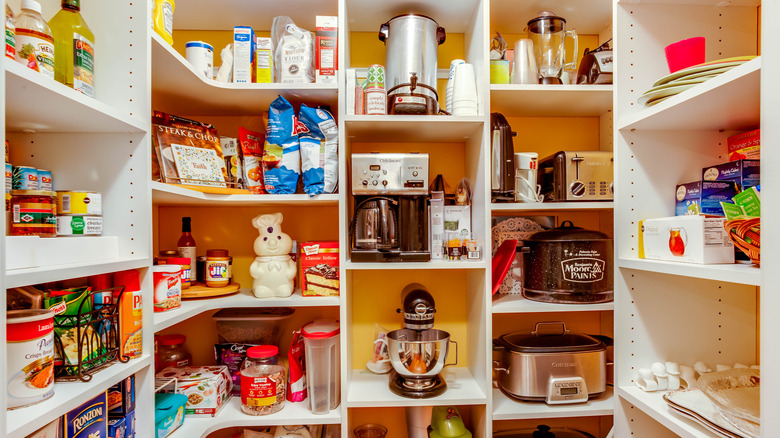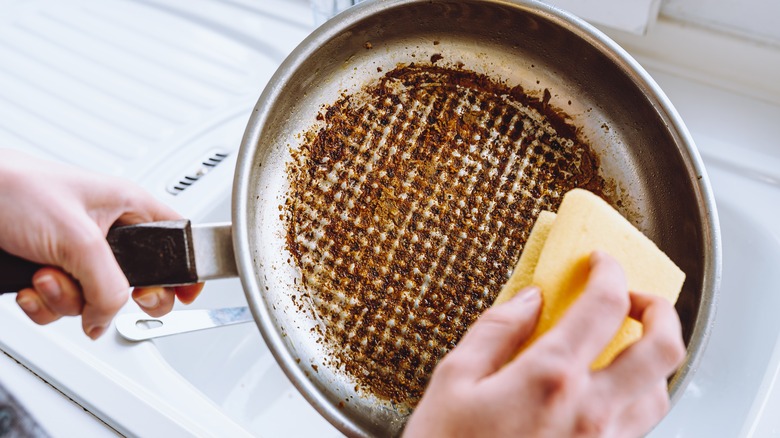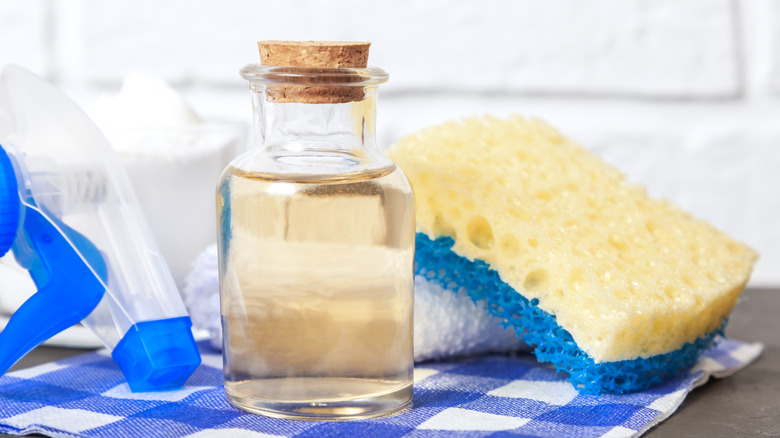The Pantry Staple That'll Clean Your Sponges Like A Charm
Whether it is a perfectly balanced salad dressing or a flawless tangy marinade, some dishes just are not the same without vinegar. Vinegar has an unmistakable and unforgettable scent thanks to its acetic acid. It is easy to tell when a vegetable has been pickled to perfection with vinegar or when vinegar has saved a dish by filling in for a missing ingredient. But did you know it might also be the missing ingredient you have been looking for in your regular cleaning routine?
Not only does acetic acid give vinegar its characteristic smell, but it also makes vinegar an effective cleaning agent for countertops, faucets, restroom and kitchen appliances, and laundry. Why should sponges be left out of all the fun? Distilled white vinegar can kill foodborne germs like E. coli, salmonella, and listeria monocytogenes, all of which might be making their home in that lovely damp sponge on your kitchen counter.
Vinegar does not disinfect, it cleans
While all you need to deep-clean your kitchen sponges is a dishwasher, vinegar can be an alternative. White distilled vinegar is the vinegar of choice due to its antibacterial properties and color since darker varieties may stain your sponge. The acetic acid in vinegar is what allows it to remove dirt, debris, and some germs so effectively, but it does not pose a health risk to users because of its low concentration.
While distilled vinegar is able to kill some foodborne germs, it is not proven to kill 99.9% of disease-causing germs like commercial sanitizers can. This means that while vinegar is the perfect cleaner for any gross debris or dinner leftovers stuck in your sponge, it is not guaranteed to kill all of the harmful germs that live there. It is, however, still a reliable choice for the daily cleaning every sponge needs, and is even more effective when used with salt and heat. As the dirtiest thing in your kitchen, sponges are one of the most important kitchen tools to replace weekly, regardless of the dedicated upkeep and cleaning.
What about that smell?
While the acetic acid in vinegar is a boon for cleaning sponges, it may leave behind whispers of a vinegar aroma. The scent will fade over time and use, but adding a drop or two of essential oils, such as lemon, lavender, or peppermint, can go a long way in concealing the vinegar scent.
If the scent is just too much and essential oils aren't the answer, apple cider vinegar will work well in place of white distilled vinegar. Apple cider vinegar will add a sweeter scent, with the only downside being that its light brown hue might lead to staining.
When your sponge starts to carry a scent that even vinegar cannot overpower, it is likely time to let your sponge go. Sponges are one of many kitchen tools you should be replacing more often than you realize, especially since they are prime real estate for sneaky bacteria looking for a home.


